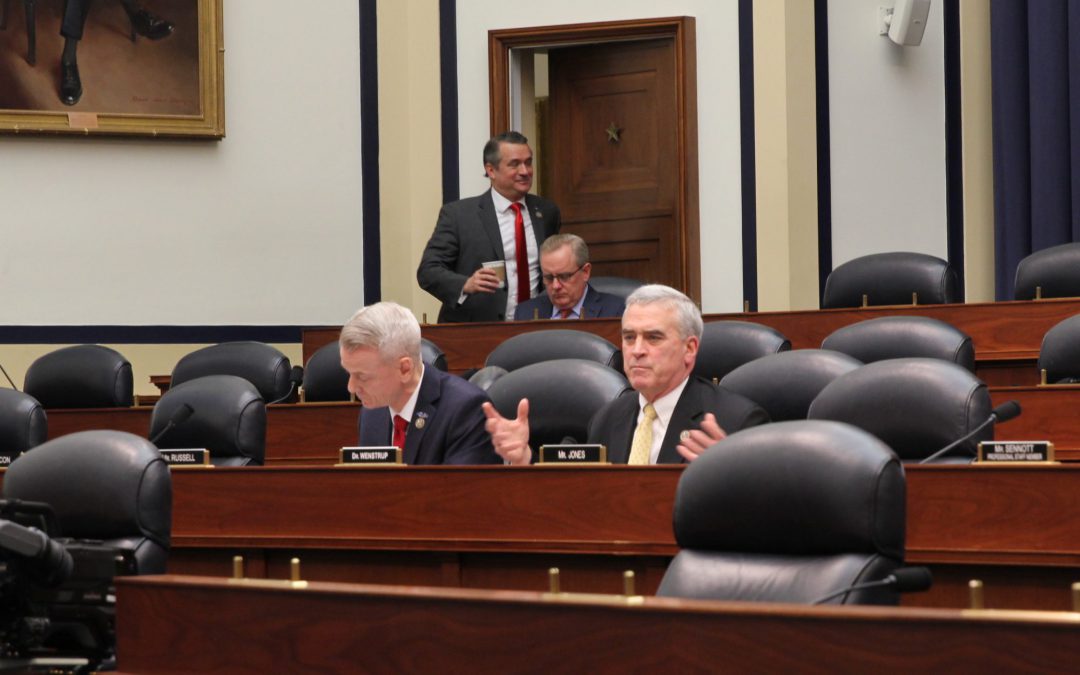WASHINGTON – Despite recent reports of sexual misconduct by senior military leaders, no more than 1 percent of generals have been accused of improper sexual relationships or sexual misconduct, Department of Defense and military experts said Wednesday at a congressional hearing.
“This small fraction of senior leaders does not represent the honorable service and character of the entire General Officer Corps,” Army Inspector General Lt. Gen. David Quantock said.
However, Rep. Jackie Speier, the top Democrat on the House military personnel subcommittee, cited the following recent revelations by the news media of instances of sexual misconduct by senior officers several years ago, and questioned why Baker and other general officers do not receive more severe punishment.

“One of the core tenets of military service in our country is that no one is above the law,” Speier said, “but there is a phrase in the military that goes like this: ‘Different spanks for different ranks.’”
Quantock disputed that claim, saying senior officers are punished more harshly in substantiated instances of sexual misconduct because leaders deserve to be held to a higher standard. These punishments often involve a demotion, substantial reductions in pensions and a letter of reprimand, he said.
“I spent 27 years coming up the chain just like everybody else, and I can tell you we crush general officers for this kind of offense,” Quantock said. “And should they be crushed? Absolutely.”
In fiscal 2017, there were no substantiated claims of sexual harassment and eight substantiated claims of inappropriate sexual relationships, the Defense Department says.
The head of the Service Women’s Action Network, a female veterans’ advocacy group, said in an interview that the low numbers are likely because of a reluctance to report harassment against powerful people rather than because there are few incidents.
“We hear from service women all the time that they’re unlikely to report incidents of sexual assault and harassment against general officers,” SWAN CEO Lydia Watts said. “We are confident that the low numbers are not an indicator of some kind of success on the part of the DOD – we assert it’s actually a flaw in the system.”
%
The DOD found that in 2016, 58 percent female soldiers who reported sexual misconduct experienced some sort of retaliation as a result.
Sen. Kirsten Gillibrand, a member of the Senate Armed Services Committee, introduced a measure in November that would put the decision of whether or not to move forward with a complaint in the hands of military prosecutors rather than unit commanders. The bill has not yet been voted on in either the House or Senate.
“We need to take the prosecution of military sexual assault and other violent felonies out of the chain of command now, put it in the hands of independent military prosecutors who know what they are doing, who are trained to prosecute these crimes,” Gillibrand said at a news conference about the bill last year.
In the meantime, Defense Department Principal Inspector General Glenn Fine said the DOD is taking several steps to improve the disciplinary process regarding senior leader misconduct. The DOD, Fine said, is working on developing a standardized case management system for all types of misconduct, which would create uniform processes and speed transmittal and storage of investigative data.
Fine also said the Pentagon will continue releasing certain substantiated instances of misconduct to the public. However, more than one of the sexual misconduct cases Speier brought up in her opening remarks were not made public until journalists got the information through Freedom of Information Act requests, which she said is particularly frustrating for her as a member of Congress.
“Why is Congress often the last to know?” Speier said. “We have oversight responsibilities. You should come to us when you have an issue with a senior officer, so we don’t have to read it in the press to find out.”
Going forward, Fine testified that every department in the military could use significantly more personnel to continue improving the disciplinary process. Though these numbers have been improving steadily, Fine said it took the Office of the Inspector General an average of 429 days to complete a senior official investigation. He asked the committee for at least 100 more staff members (which would bring the total staff to 1700 employees) to help reduce this lag.
“The number of cases has risen, and we take each of them seriously, but we can only do more with less for so long,” Fine said.

